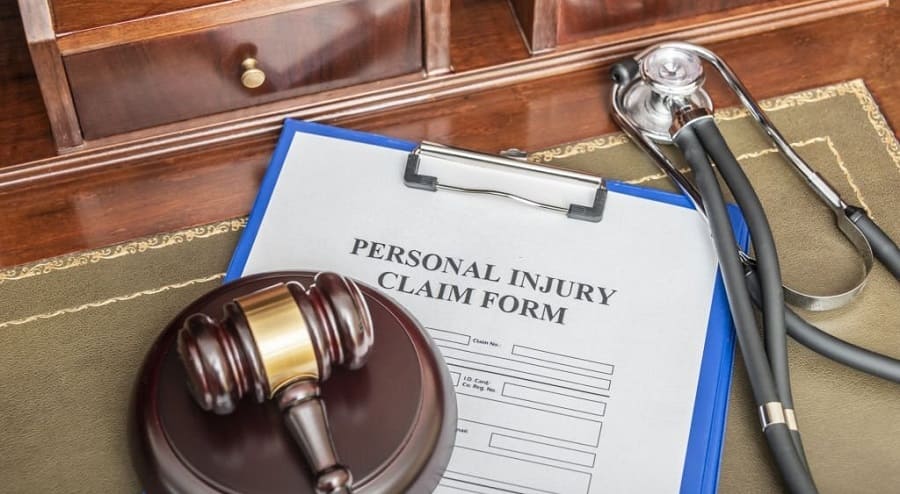Currently Empty: $0.00

The Critical Stages of a Personal Injury Case
If you have been injured and someone else is responsible for it, whether it is through a car accident, motorcycle accident, workplace injury, dog bite, or medical malpractice, you need to file a personal injury claim. This way, you can be compensated for medical costs and lost wages.
However, navigating a personal injury case can be challenging, especially if it is your first time. It involves various crucial steps. Understanding these steps can help injured individuals manage their expectations and adequately prepare for the legal process.
This article discusses a detailed guide on the stages involved in a personal injury case. Let’s get started!
- Initial consultation with a personal injury lawyer
First, if you have been injured and believe it is due to another person’s negligence, you need to speak with a qualified and experienced Edmonton personal injury lawyer before you file a personal injury lawsuit. Look for a lawyer who specializes in personal injury law and has a proven track record in handling cases similar to yours. This way, you are guaranteed a positive outcome for your case.
Once you find your ideal personal injury lawyer, set up an appointment with them. During the initial consultation, the lawyer will assess the merits of your case. You will discuss the details of the incident that caused your injuries, the extent of your injuries, and any evidence you might have. This is also the stage where the lawyer will provide an initial assessment of your case and explain the whole legal process so that you can better grasp it.
You will then discuss the fee structure if the lawyer agrees to take your case. Fortunately, most personal injury lawyers work on a contingency fee basis. This basically means that you only pay them if you win the case.
- Investigation and evidence gathering
Now, this is a crucial stage of your personal injury case as it will determine the outcome of your case. Thanks to their experience and expertise, your lawyer will gather all the necessary evidence to support your claim and build a strong case. This includes medical records, police reports, photographs of the accident scene, injuries, witness statements, and other relevant documentation.
You may also have to undergo a medical examination by a doctor who can provide expert testimony on the extent of your injuries and their impact on your life. Sometimes, your lawyer may work with a reconstruction expert to recreate the incident and determine how it happened.
- Filing a personal injury claim
Now that your lawyer has gathered adequate evidence that supports your case, the next important thing is to file a personal injury claim. Your lawyer will draft a legal document known as a complaint. This document outlines the details of your case the legal grounds for your claim and the damages you are seeking. This document is filed with the appropriate court, and a copy is served to the defendant [the party you are suing].
The defendant will then respond to the complaint by filing an answer, which may include counterclaims and defenses.
- Discovery process
This stage involves both parties exchanging information and evidence to build their respective cases. Both parties request relevant documents from each other, including medical records, employment records, and other pertinent information. The discovery process aims to uncover all relevant facts, clarify issues in dispute, and prevent surprises during the trial, ensuring both parties have a fair opportunity to represent their cases.
- Pre-trial and negotiations
Both parties may file various motions with the court before the trial. These may include motions to dismiss the case, exclude certain evidence, and motions for summary judgment. In most cases, personal injury cases are resolved through settlement negotiations before going to trial.
This is where your lawyer’s role becomes crucial. They will negotiate with the defendant or their insurance company to reach a fair settlement. If a settlement is reached, you will sign a settlement agreement, and the case will be resolved.
- Trial preparation
If a settlement is not reached, the case will go to trial. In that case, your lawyer will develop a trial strategy, typically identifying key witnesses, preparing exhibits, and drafting opening and closing statements. The court may hold pre-trial conferences to address any remaining issues and set a trial date.
- The trial
At the trial, if it involves a jury, the selection process of jurors takes place. Both sides must question potential jurors to ensure a fair and neutral jury. Once jurors have been selected, both sides present their opening statements, outlining their case and what they intend to prove. They will present their evidence, including witness testimony, physical evidence, and expert opinions. The plaintiff presents their case first, followed by the defendant.
During the trial, both sides can cross-examine each other’s witnesses. Then, they present their closing arguments, summarizing the evidence and finalizing their appeal to the jury or judge.
The jury will then deliberate and reach a verdict. In a bench trial, the judge will make the decision. If the jury or judge favors the plaintiff, damages will be awarded.
- Post-trial motions and appeals
The plaintiff or defendant may file post-trial motions, such as a motion to alter the judgment or a motion for a new trial. If either party is not satisfied with the income, they may file an appeal to a higher court. This usually happens within 30 days of the initial ruling. The appeal process involves reviewing the trial record and determining if legal errors affected the outcome.
Final thoughts
The personal injury case process can be quite complex and lengthy, as it involves multiple stages. Each of these steps requires careful preparation, thorough investigation, and strategic negotiation.
But with a qualified and experienced personal injury lawyer by your side, you will be able to smoothly navigate the process and ensure your rights are well protected and that you receive the compensation you deserve.

